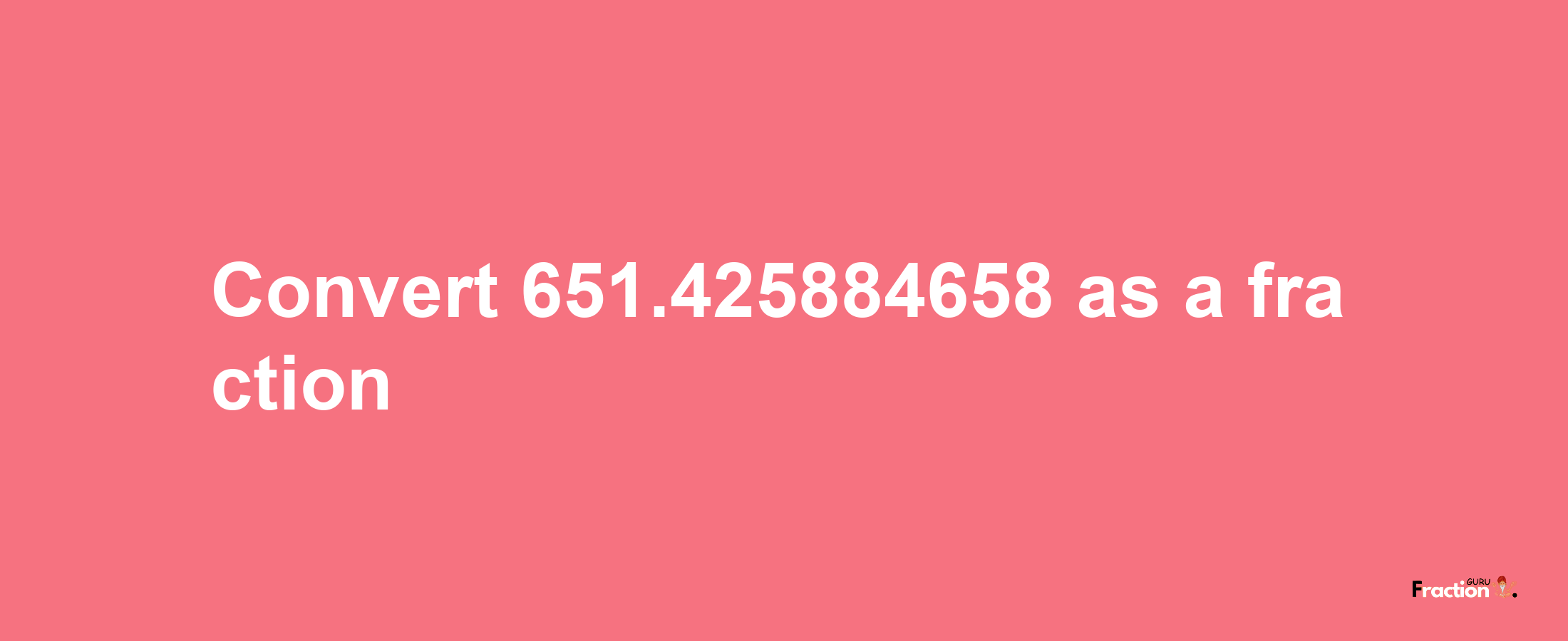Step 1:
The first step to converting 651.425884658 to a fraction is to re-write 651.425884658 in the form p/q where p and q are both positive integers. To start with, 651.425884658 can be written as simply 651.425884658/1 to technically be written as a fraction.
Step 2:
Next, we will count the number of fractional digits after the decimal point in 651.425884658, which in this case is 9. For however many digits after the decimal point there are, we will multiply the numerator and denominator of 651.425884658/1 each by 10 to the power of that many digits. So, in this case, we will multiply the numerator and denominator of 651.425884658/1 each by 1000000000:
Step 3:
Now the last step is to simplify the fraction (if possible) by finding similar factors and cancelling them out, which leads to the following answer for 651.425884658 as a fraction:
30617/47 / 1


